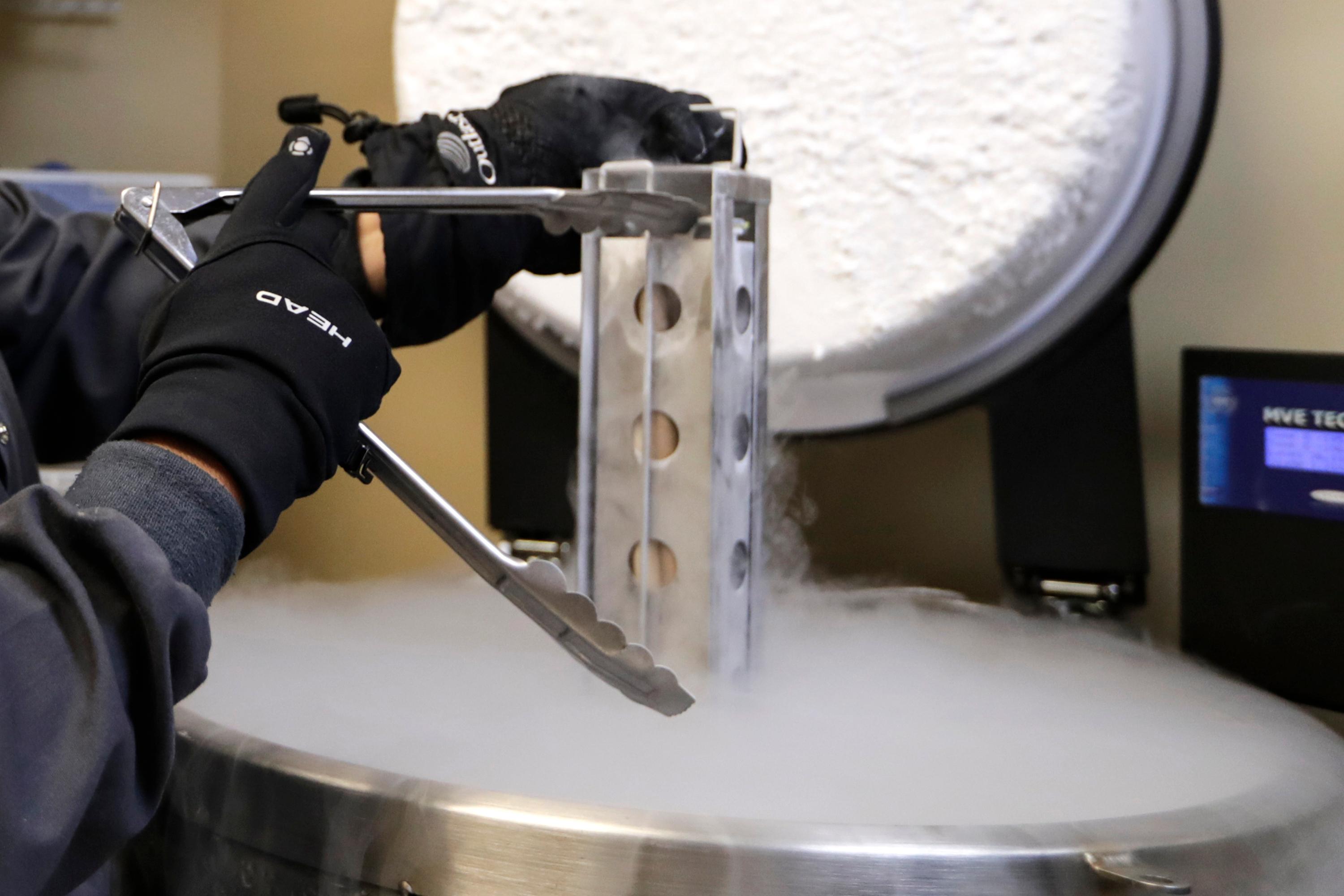
Update, 1:30 p.m. June 13, 2024: The Senate failed on Thursday afternoon to advance a bill to protect access to in vitro fertilization, or IVF, nationwide. The 48-47 outcome fell short of the the 60 votes needed to move forward. GOP Sens. Lisa Murkowski and Susan Collins were the only Republicans to vote with Democrats.
The original story continues below:
When Sen. John Hickenlooper and his wife decided to have a child, they used in vitro fertilization or IVF. Their son is now 18 months old.
“You’re actually sitting beside the living proof that there’s at least one miracle left in each of us,” Hickenlooper told a crowd in Washington, D.C. on Wednesday. “We’re at a time where people can have that most sacred opportunity to have a child, who otherwise couldn’t.”
Hickenlooper and other Senate Democrats will try today to move a bill forward that would protect access to IVF and make it more affordable.
“It’s a broader protection,” said Hickenlooper of the bill. “IVF is one of the miracles of the modern age…and to restrict that to some states and not others, to some people and not others, seems kind of a travesty of what this country should be about — opportunity for all.”
The Right to IVF Act would establish nationwide access to the treatment, as well as for doctors to provide treatment and for insurance companies to cover it. It comes months after the Alabama Supreme Court equated frozen embryos to children and led IVF providers to suspend services. (The Alabama Legislature had to pass a law to extend immunity to IVF clinics in the state.)
But the bill would need to clear a procedural vote that requires at least 60 senators to proceed. Most Republicans are expected to vote against advancing the measure over concerns about religious freedoms and states’ rights.
This issue, like a bill to protect access to contraception last week, has been part of a messaging campaign by Democrats in the wake of the Supreme Court’s overturning of Roe v. Wade and questions about protections for reproductive rights.
The vote is expected to put Republicans on the record and on the spot.
“Protecting IVF should be the definition of an easy vote for Senators on both sides of the aisle,” said Senate Majority Leader Chuck Schumer, a Democrat from New York. “So, despite some claims from my colleagues on the other side, protecting IVF is not a ‘show vote’ at all. It is a ‘show-us-who-you-are’ vote.”
GOP Sen. Ted Cruz of Texas said this move is about politics, not policy.
“This vote is not an attempt by the Democrats to protect IVF. They know this vote is going to fail,” said Cruz. He countered the vote is about setting up political ads.
Still, Republicans tried to pass a messaging bill of their own to put Democrats on the spot.
On Wednesday, Cruz and fellow Sen. Katie Britt of Alabama tried to get unanimous consent for their IVF bill, called the IVF Protection Act, a much narrower bill than the one introduced by Democrats. It would make states that ban access to IVF ineligible for Medicaid funding.
Democratic Sen. Patty Murray objected to the passage of the bill. She said the GOP bill does not protect IVF.
“Under this bill there are a million ways Republican-led states could enact burdensome and unnecessary requirements and recreate the kind of legal uncertainty and risk that would force clinics to, once again, close their doors,” Murray said.

Hickenlooper is hopeful that common bipartisan ground on the issue can be found.
“Bipartisan doesn’t mean unanimous. We debate and listen to each other and try to figure out what is the best compromise we can get to where everybody feels they’ve made progress,” he said.
But that might not come until after the November election.









